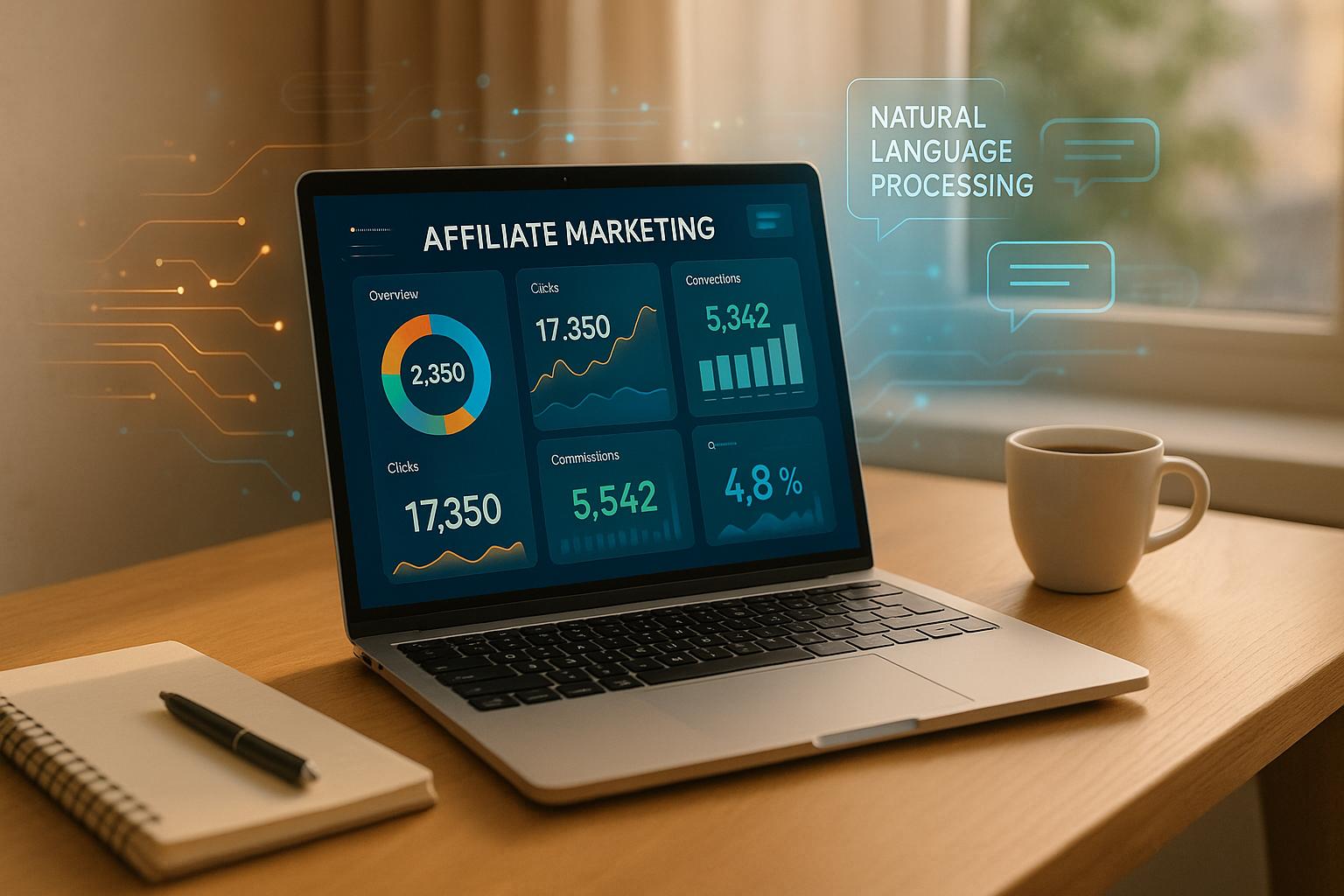AI prospecting is transforming sales by helping businesses identify and engage leads more effectively while boosting revenue. But using AI ethically is crucial to maintaining trust and fairness. Here's a quick summary of what you need to know:
-
Core Principles:
- Data Privacy: Protect customer information through consent management, encryption, and regular audits.
- Bias Prevention: Use diverse datasets, audit algorithms, and analyze for potential harm to ensure fairness.
- Transparency: Clearly disclose AI usage, explain decisions, and provide human contact options.
-
Why It Matters:
- 75% of consumers avoid unethical companies.
- 86% are more loyal to ethical businesses.
- Ethical AI can lead to 10-20% higher sales ROI.
-
Immediate Steps:
- Train staff on ethical AI practices.
- Audit AI tools regularly for bias and compliance.
- Use clear protocols for data collection and decision-making.
Core Ethics in AI Prospecting
This section highlights the key principles that ensure ethical practices in AI prospecting.
Data Privacy Rules
Protecting data privacy is at the heart of ethical AI prospecting. TrustCloud explains:
"Data privacy in the context of artificial intelligence (AI) presents significant ethical considerations and demands adherence to best practices. Since AI processes extensive personal data, implement robust privacy safeguards." [2]
Here are some critical privacy practices for AI prospecting tools:
| Requirement | Implementation | Impact |
|---|---|---|
| Data Minimization | Collect only essential prospect data | Lowers privacy risks and enhances compliance efforts |
| Consent Management | Use clear opt-in mechanisms | Builds trust and ensures compliance with GDPR/CCPA |
| Security Measures | Apply encryption and limit access | Protects data from unauthorized access |
| Regular Audits | Monitor data handling and compliance regularly | Maintains high privacy standards |
Preventing AI Bias
AI bias can lead to unfair outcomes and harm trust. A 2022 Harris Poll revealed that 82% of consumers expect companies to align with their values, and 75% would switch brands if they don't [3].
Lucy Vasserman from Google highlights the issue:
"Flawed data is a big problem...especially for the groups that businesses are working hard to protect." [4]
To address AI bias, companies should focus on the following steps:
| Bias Prevention Step | Key Actions | Expected Outcome |
|---|---|---|
| Data Diversity | Use diverse data sources | Reduces exclusion and encourages inclusive practices |
| Algorithm Auditing | Test algorithms for discriminatory patterns | Promotes fairness and ethical prospecting |
| Bias Impact Analysis | Assess potential negative effects on groups | Avoids unintended harm and supports fair outcomes |
Clear AI Communication
Transparency is critical, with 63% of consumers wanting disclosure when content is AI-generated [5]. The Zendesk CX Trends Report 2024 states:
"Being transparent about the data that drives AI models and their decisions will be a defining element in building and maintaining trust with customers." [6]
Key steps for clear communication include:
- Clearly indicate when prospects are interacting with AI systems.
- Use simple language to explain how AI works and makes decisions.
- Offer options for prospects to opt out or contact a human representative.
AI Prospecting Guidelines
Sales teams need clear protocols to use AI responsibly. When implemented correctly, AI can lead to a 10-20% boost in sales ROI for companies [9]. These guidelines aim to turn ethical principles into practical, everyday actions.
Data Collection Standards
Ethical AI starts with responsible data collection. Adam Herbert, CEO of Go Live Data, puts it best:
"Ethical data management isn't a one-time effort; it's a continuous commitment." [7]
Key practices include securing documented consent, collecting only necessary data, regularly updating databases, and enforcing strong security measures. These steps help ensure transparency and compliance with privacy laws.
AI System Checks
AI tools are widely used in sales, with over 40% of professionals relying on them for data analysis and lead scoring [1]. To keep these systems ethical:
- Audit algorithms regularly to check for performance issues and bias - human-designed systems can carry over human biases [8].
- Monitor metrics like response accuracy, incidents of bias, and compliance with standards.
- Keep detailed records of system audits, updates, and responses to any issues.
Pairing these audits with staff training helps maintain ethical AI practices.
Staff Ethics Training
As 84% of workers worldwide believe AI will enhance their careers [10], proper training is essential. Tony Zayas, Chief Revenue Officer at Insivia, says:
"AI isn't just a trend; it's becoming the foundation upon which successful teams are built." [10]
Training should cover AI basics, data privacy laws (like GDPR and CCPA), recognizing bias, and handling ethical dilemmas. Currently, only 38% of U.S. executives are working to make their teams AI-literate [10], offering a clear opportunity for leadership in ethical AI use.
sbb-itb-9cd970b
Setting Up Ethical AI Tools
To implement AI tools responsibly, focus on compliance and openness. This ensures that your tools align with ethical standards while maintaining trust and accountability.
AI Tool Selection Guide
When choosing AI tools, evaluate them based on these key ethical factors:
| Evaluation Criteria | Key Requirements |
|---|---|
| Data Privacy | GDPR compliance, data encryption, and mechanisms for user consent |
| Transparency | Clear explanations for AI decisions, thorough documentation, and audit trails |
| Bias Prevention | Regular testing for bias, diverse training datasets, and measurable fairness standards |
| Security | End-to-end encryption, access controls, and vulnerability scanning |
It’s also a good idea to conduct Privacy Impact Assessments (PIAs) before adopting any AI tool [12]. Once you’ve defined your criteria, browse directories to identify tools that meet your ethical and operational needs.
Top SaaS & AI Tools Directory
The Top SaaS & AI Tools Directory is a useful resource for finding AI solutions that prioritize ethics and effective data handling. Use it to explore tools with transparent policies and robust compliance measures.
CRM Integration Steps
After selecting tools that meet your ethical standards, integrate them into your CRM through well-organized and secure processes. This includes mapping workflows to safeguard data privacy [11].
Here are some key steps to consider:
- Data Governance Setup: Create policies and maintain detailed inventories to monitor how data flows through your systems [12].
- Security Configuration: Use encryption, enforce role-based access, conduct regular audits, and set up automated monitoring.
- Training Protocol: Provide training to your team on both the technical integration process and ethical practices.
Conclusion
Key Takeaways
Ethical AI prospecting relies on three main pillars: data privacy, bias prevention, and transparency. Companies like IBM and Microsoft demonstrate these principles through bias audits, clear AI documentation, and ethics-focused committees [5].
Here's how these elements translate into real-world outcomes:
| Core Element | Implementation Requirements | Impact Metrics |
|---|---|---|
| Data Privacy | GDPR compliance, encryption, and consent mechanisms | Fewer data breaches and better user trust |
| Bias Prevention | Regular audits, diverse datasets, and fairness tests | More balanced results and improved representation |
| Transparency | Clear documentation, accessible reporting, and feedback systems | Greater accountability and stronger customer relationships |
Joy Buolamwini's 2017 research on facial recognition bias highlights the importance of diverse perspectives and thorough fairness testing in AI systems.
Grasping these foundational elements is a necessary step toward actionable strategies in AI-driven sales.
Moving Forward in AI Sales
To refine AI prospecting methods, organizations can use tools like AI Fairness 360 and Facets to detect and address biases early [13].
Here are three immediate steps to get started:
- Identify prospecting challenges with input from sales leadership.
- Develop ideal prospect profiles using past deal data [15].
- Test ethical frameworks with pilot groups before full-scale implementation [15].
These steps establish the groundwork for a trustworthy and effective AI sales process.
Adapting to ethical standards and maintaining transparency will remain ongoing priorities. As Onara O'Neill wisely states:
"Speaking truthfully does not damage trust, it creates a climate for trust" [14].



